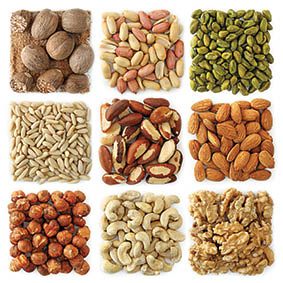
The name Ubiquinone suggests that it is ubiquitous – present in all living cells. This particular coenzyme (also called Coenzyme Q10, or CoQ10) plays a critical role in making energy available to our cells, helping them carry out their life-giving properties. Most diets offer about 25% of the body’s requirement. For this reason, acute deficiency of this coenzyme is not widespread. Yet, as and when compromised, the consequences of a deficiency can be serious; it could lead to chronic fatigue, heart disease, stroke, high blood pressure, muscular dystrophy, gum disease, AIDS and other immune deficiencies. There may also be an effect in some nerve-related conditions like Alzheimer’s or Parkinson’s….as also some cancers. When we ingest carbohydrates and fats, they need to be converted to Adenosine Triphosphate (ATP), the form of energy that is used by cells. To achieve this, we need to have Coenzyme Q in our inner mitochondrial membrane. Further, as an antioxidant, the coenzyme can help neutralise free radicals, to prevent some of the damage that they can cause. CoQ10, as a coenzyme, supports enzymes in their various biochemical functions. This fat-soluble nutrient can help protect all cells, reducing our overall risk of developing chronic diseases. CoQ10 also affects our cellular energy and the immune system. Although it is found in every cell of the body, it is present in higher concentrations in organs with higher energy requirements - such as the kidneys, liver and the heart. Unfortunately, from the onset of mid-life, our CoQ10 levels start decreasing. This problem gets compounded by the widespread use of statin drugs, often recommended for lowering blood cholesterol levels; these statins tend to interfere with our mitochondrial function.
Tip of the Week
Although the body synthesises some Coenzyme Q10 on its own, our diet also provides this to us. Most people have a dietary intake of less than 10 mg/day of CoQ10 – and the method of cooking can impact even this. Between15-32% of CoQ10 can be lost during the frying of vegetables and eggs; it remains mostly intact when boiled. The usual supplement dose used in clinical studies is 90 to 400 milligrams per day. Supplements in the form of tablets, capsules and gelcaps are quite common – and formulas that contain fat may be better absorbed by the body. Supplementation needs to be taken under guidance of healthcare practitioners.

Nature’s Wonder Food(s) of the week: High CoQ10 Natural Foods
There are several natural foods that are high in CoQ10. The best sources are fatty fish, such as cold-water fish (salmon, tuna & herring, sardines, rainbow trout), organ meats (such as liver), reindeer meat and poultry, eggs and dairy products. For vegetarians, the richest sources are nuts (almonds, peanuts, pistachio), sesame seeds, spinach, broccoli, peanuts, wheat germ and whole grains - although the amount is significantly smaller than that found in meats. Importantly, these foods should be consumed raw, fresh and unprocessed.
Coenzyme Q10 appears to be generally safe, with no major side effects, except occasional stomach upset. CoQ10 may decrease the efficacy of anticoagulant drugs as well as some anti-cancer therapies. Certain prescription medications can lower CoQ10 levels in the body – like statins and fibric acid derivatives, Beta-blockers as well as some antidepressants. Coenzyme Q should therefore be taken under the supervision of a knowledgeable healthcare provider.
For Education purposes only; always consult a Healthcare Practitioner for medical conditions
Read More...